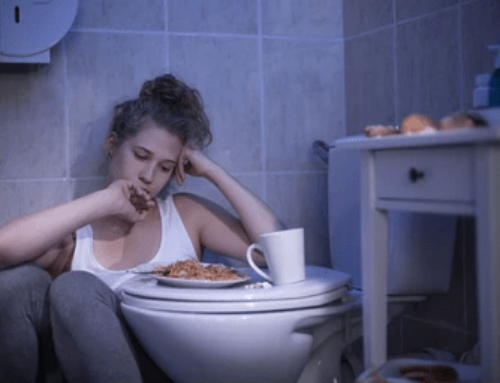Struggling to fall asleep or stay asleep at night? For many people, it is one of those elusive things when they get older. A major problem among the elderly is insomnia, which can catch you by surprise and influence your daily activities in bizarre ways. Restful sleep is vital for energy, mood, and overall health, but for many over 65, it’s not so easy to come by. So why does this happen so severely in old age? Understanding what causes these sleep disorders will help an elderly patient along with a caregiver find ways to cope with it. Let’s look in the blog at why insomnia afflicts seniors and how to handle it properly:
Physical Changes in Aging
Of course, with age come many changes in the human body. These changes will often impact the body directly to affect its sleep. However, one of the most critical factors is that the cycles of sleep change when a person grows older; they spend less time in the phase of deep sleep, which is the most restorative phase of sleep. Thus, when older adults wake up during the night, it becomes hard for them to fall asleep again.
Pain is another also very frequent problem. Many seniors have chronic pain from some such diseases as arthritis making them “rest” in bed very uncomfortable. Minor unpleasantnesses may cause sleep disturbances, thus haunting sleepless nights and nights with fretful sleeping. Other age-related conditions, like restless legs syndrome or sleep apnea, may cause insomnia as an added complication.
Medication Side Effects
Most older adults are on long-term medications for chronic conditions. Many of these medications have side effects that impact sleep. For instance, some anti-hypertensives, antidepressants, and even over-the-counter drugs like antihistamines may disrupt the regular sleep cycle.
These side effects must therefore be recognized and known to seniors and their caregivers. A visit to a doctor would be effective for any medication-causing sleep disorder, to seek an adjustment or alternative. Sometimes, a change in dosage or switching medications ensures better sleep without health compromise.
Mental Health and Insomnia
Mental health plays a significant role in quality sleep. Many seniors are anxious and depressed, especially if they feel left out or lonely. These are a few issues related to mental health that won’t let them loosen up at night, hence waking up in the middle of the night with difficulty either falling asleep or staying asleep. Anxiety about health, family members, or even the financial situation always keeps them awake way past their bedtime.

In addition, cognitive impairment, such as mild dementia, can cause sleep disorders. In Alzheimer’s patients, for example, there is “sundowning,” where symptoms worsen drastically at dusk causing insomnia. In many cases, treatment of psychiatric conditions with psychotherapy or drugs will help to resolve sleep disorders as well.
Changes in Daily Routine
Everything changes when the seniors retire and become relatively less active. They mostly end up napping during the day and thus interfere with their nighttime sleep. Lack of routine makes one nod off during the day yet wake up fully at night. Other aspects of lesser physical activities affect the natural need for resting one’s body.
Being physically active is one of the best ways of fighting insomnia. Seniors who exercise regularly will usually sleep better, even if only lightly exercising, for example, walking. Regular exercise also helps regulate the body’s internal clock. A well-structured daily routine may include set times for meals, activities, and sleeping-will help synchronize the master clock.
Hormonal Changes
Hormones play a significant role in regulating sleep, and as we age, our hormone levels change. Melatonin, the hormone responsible for regulating sleep-wake cycles, decreases with age. This can make it harder for seniors to fall asleep and stay asleep. Cortisol, the stress hormone, can also fluctuate, leading to restless nights.
Understanding these hormonal changes is key to managing insomnia in seniors. Supplements like melatonin can sometimes help, but it’s important to consult with a healthcare professional before starting any new treatment. Lifestyle changes, such as creating a relaxing bedtime routine and limiting screen time before bed, can also support better sleep.
Environmental Factors
The environment can sometimes contribute to which, how well seniors sleep. Noises, lights, and temperatures play a role in the quality of sleep. Seniors can be very sensitive to changes in environmental conditions and thus find it rather challenging to fall asleep. For instance, street noises or a warm room can easily disrupt rest.
Sometimes a change in their sleep environment is all it takes to solve the problem. Blackout curtains; a white noise machine; a cool room ambient; or some other simple change can improve the environment for better, normal sleeping.
Conclusion
If you or your loved one are experiencing insomnia and looking for holistic treatment, it may be time to explore hypnotherapy. At Advanced Hypnotherapy of Naples, we recognize that sleep disorders are an increasing concern as people age. We work with seniors to eliminate sleep disorders and achieve restful nights through our customized hypnotherapy sessions as well as understanding the cause of the findings leading to insomnia, deep relaxation techniques, and long-term relief.
- Advanced Hypnotherapy of Naples has some of the most experienced, best qualified Certified Clinical Hypnotherapists in the state of Florida.
- Start getting the deep recuperative sleep you need. Call 239-692-9988, or click the link below and save 20% on your first appointment……
- https://advancedhypnonaples.com/booking/



